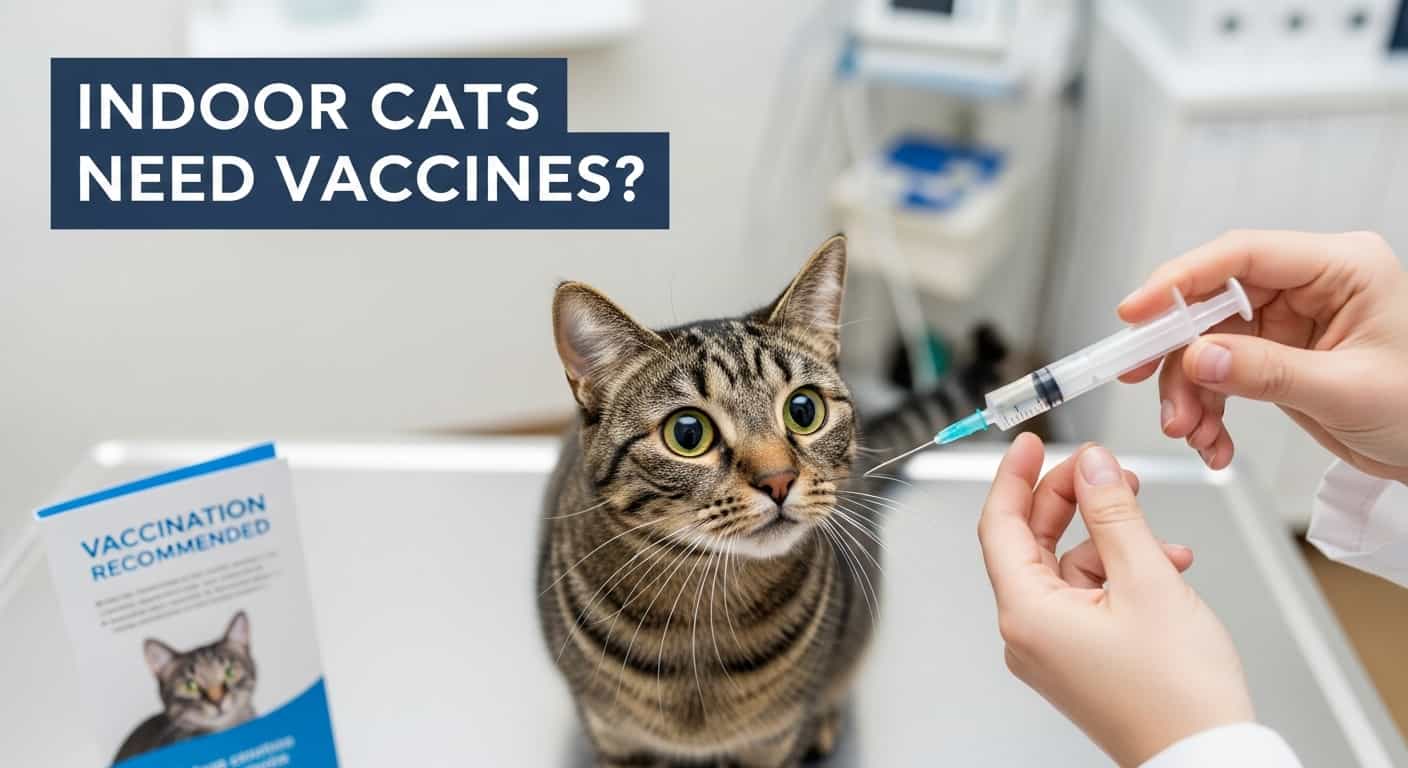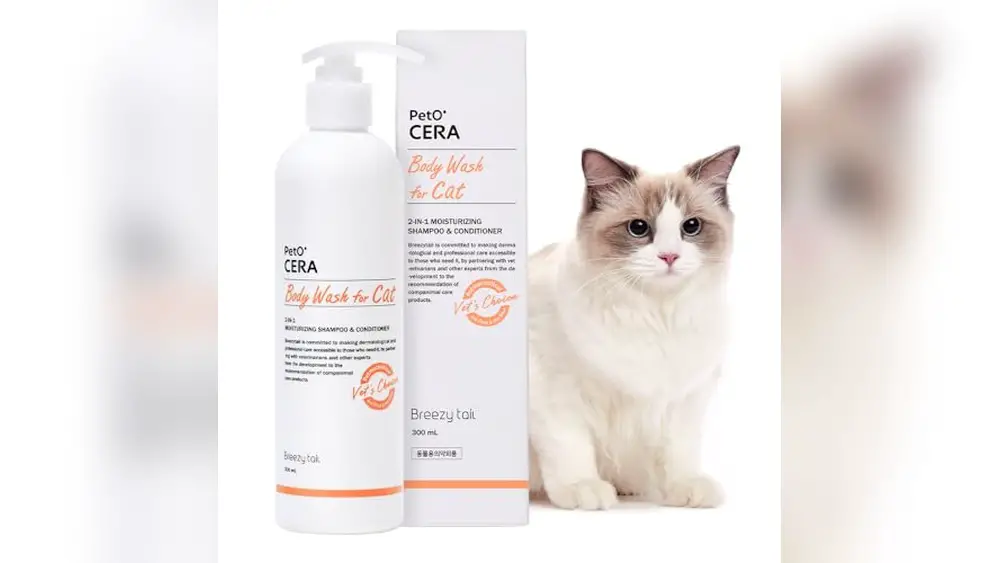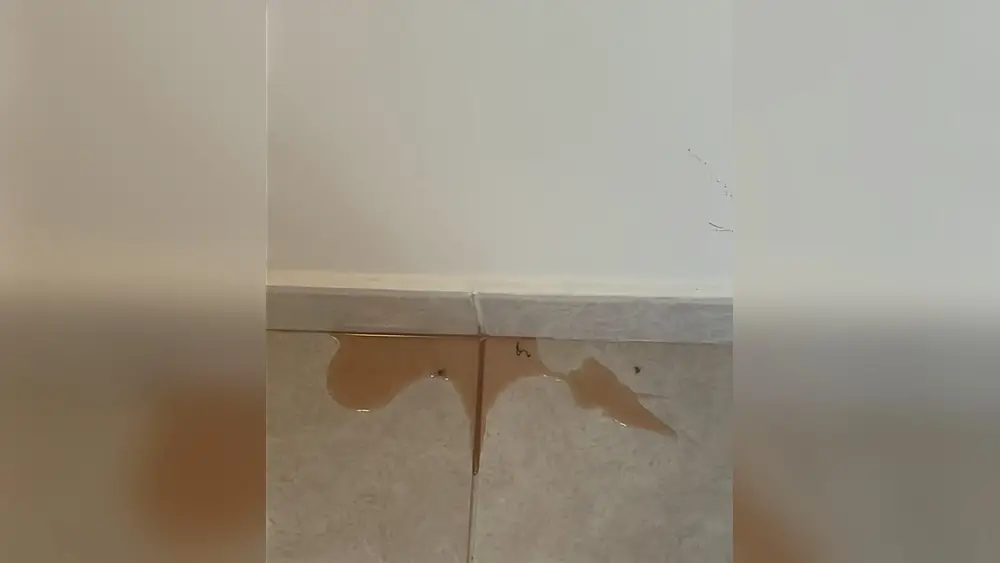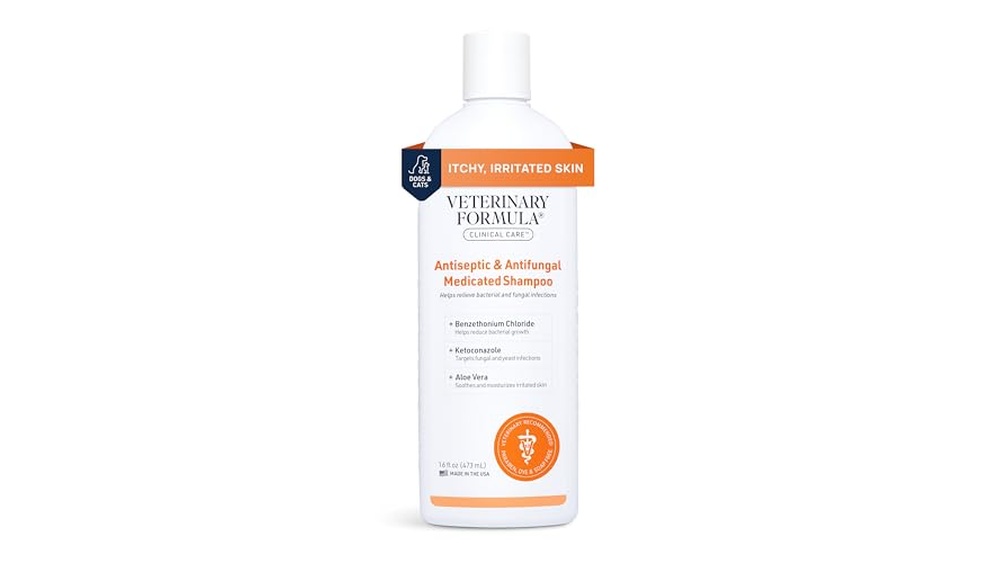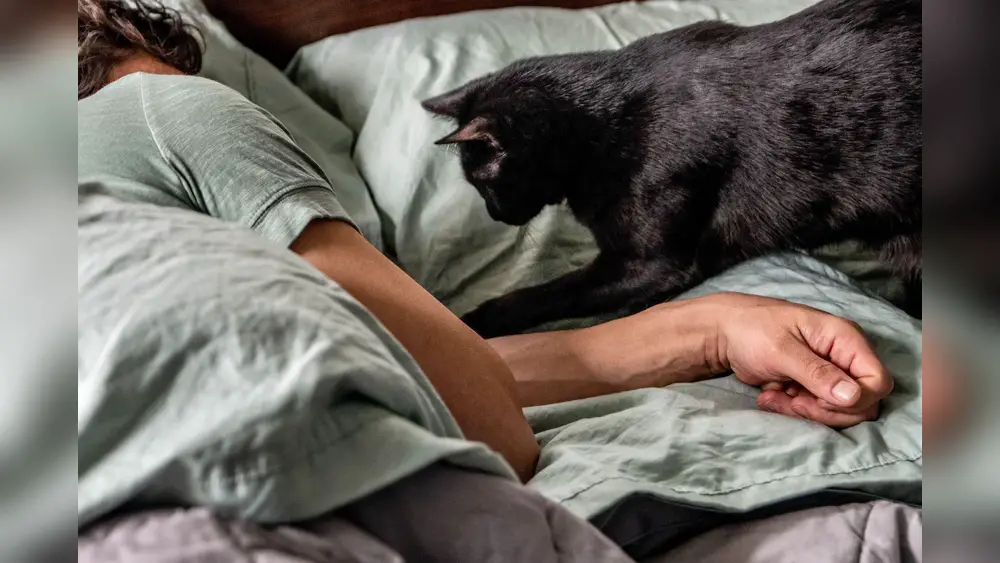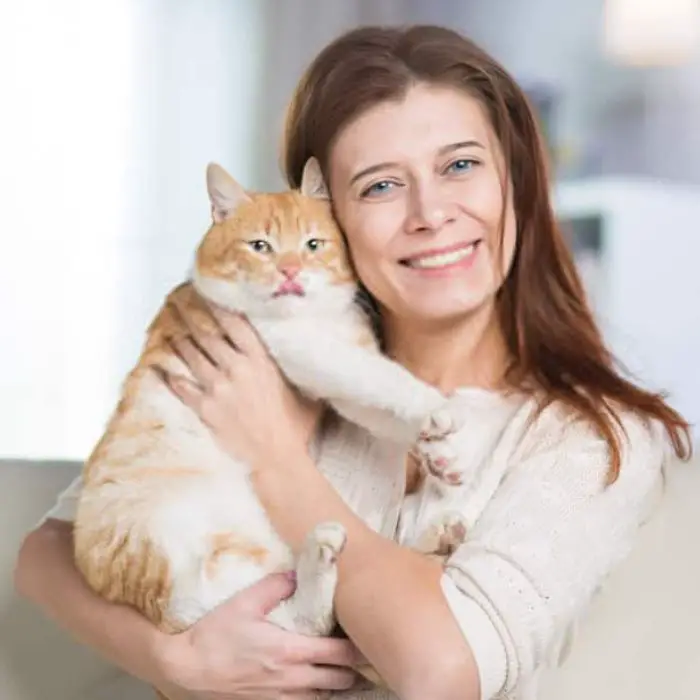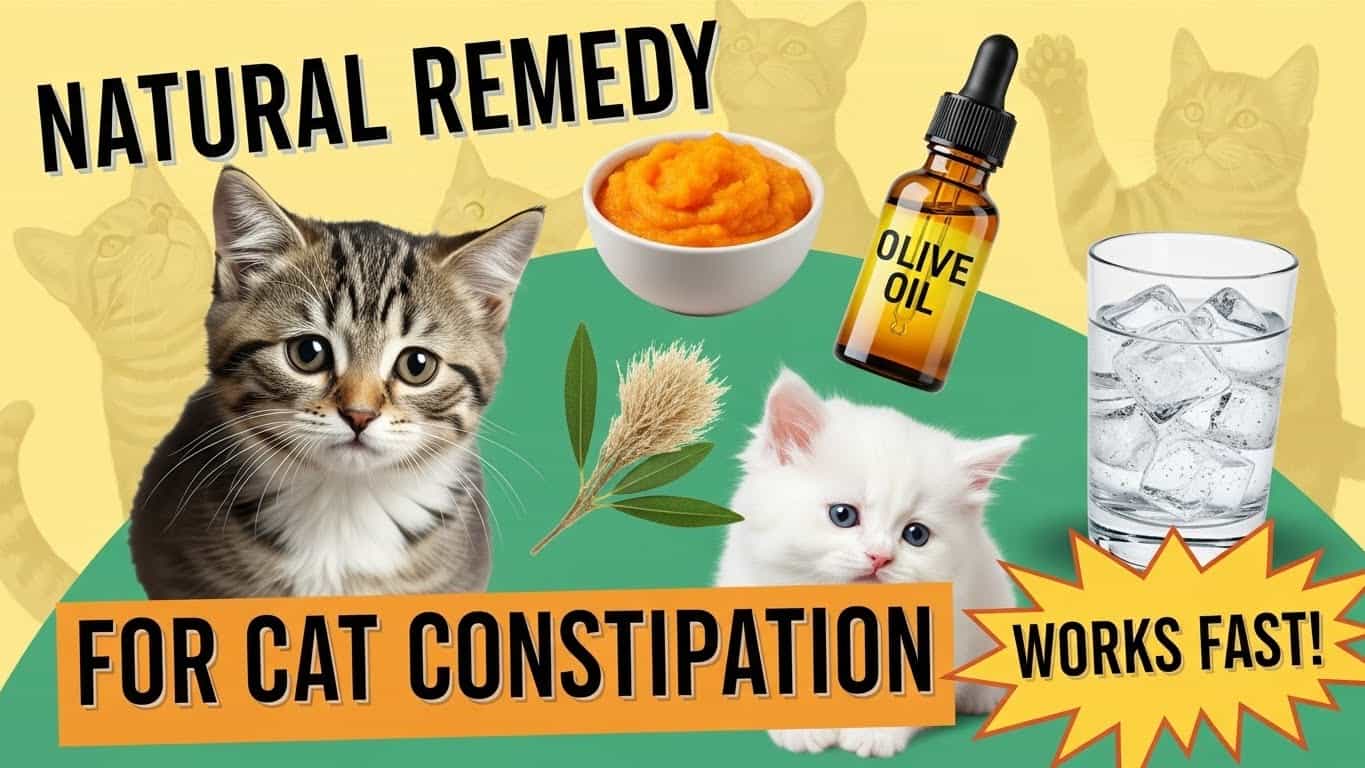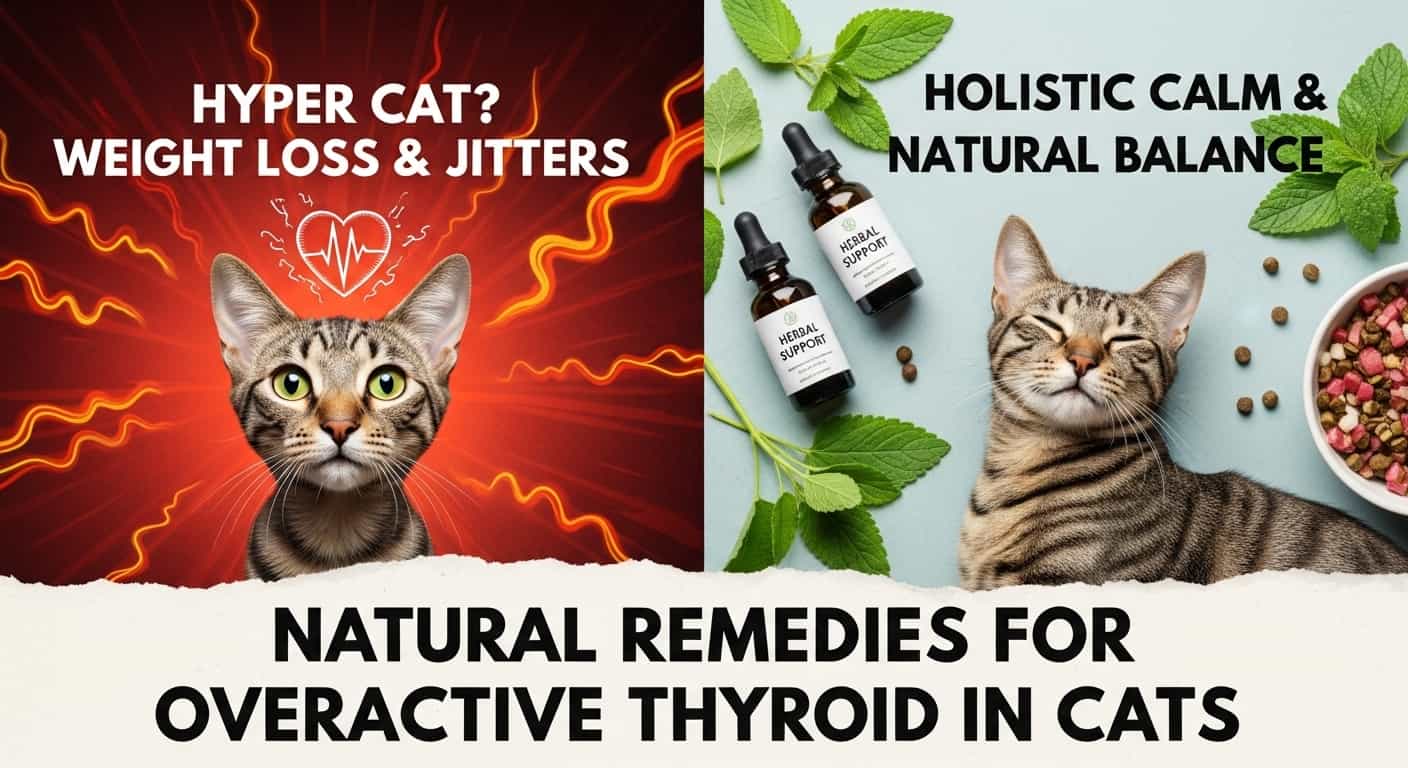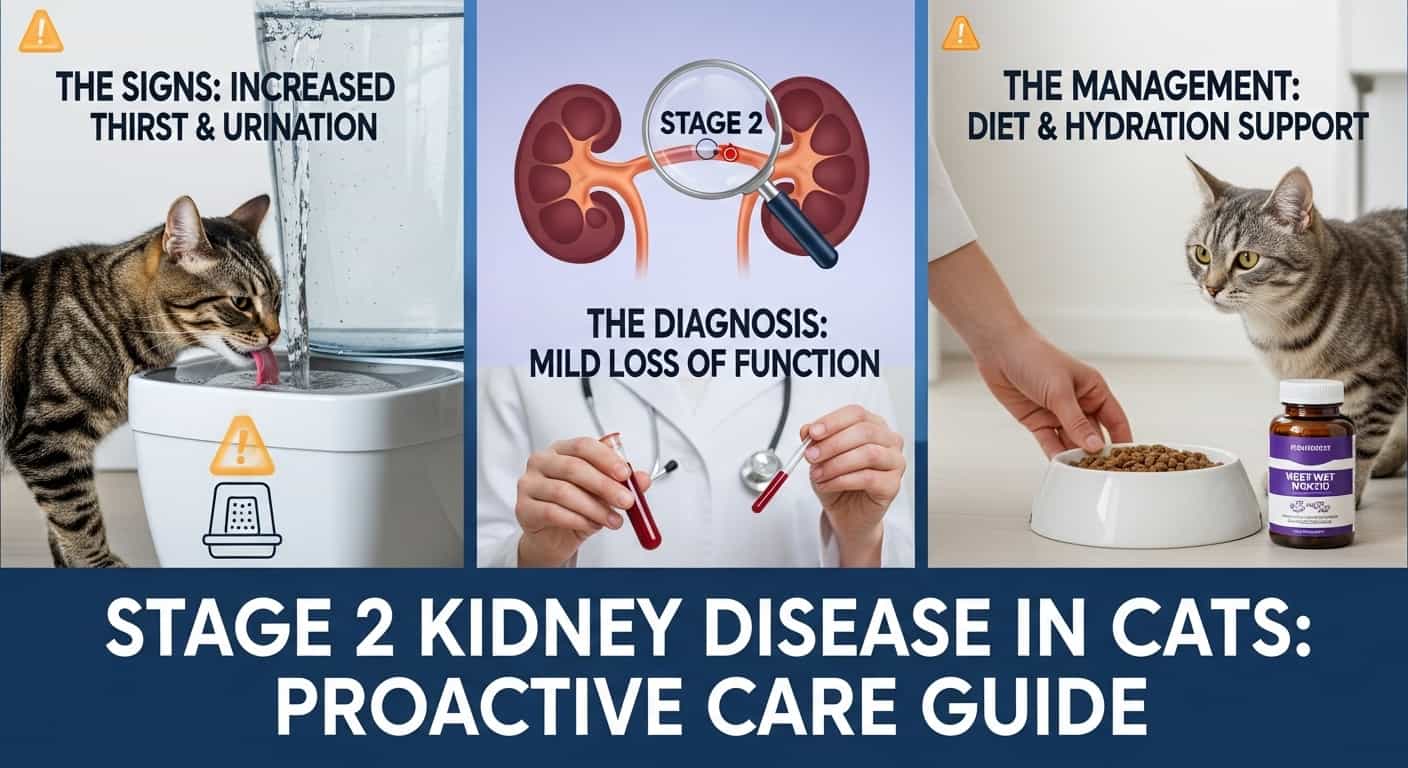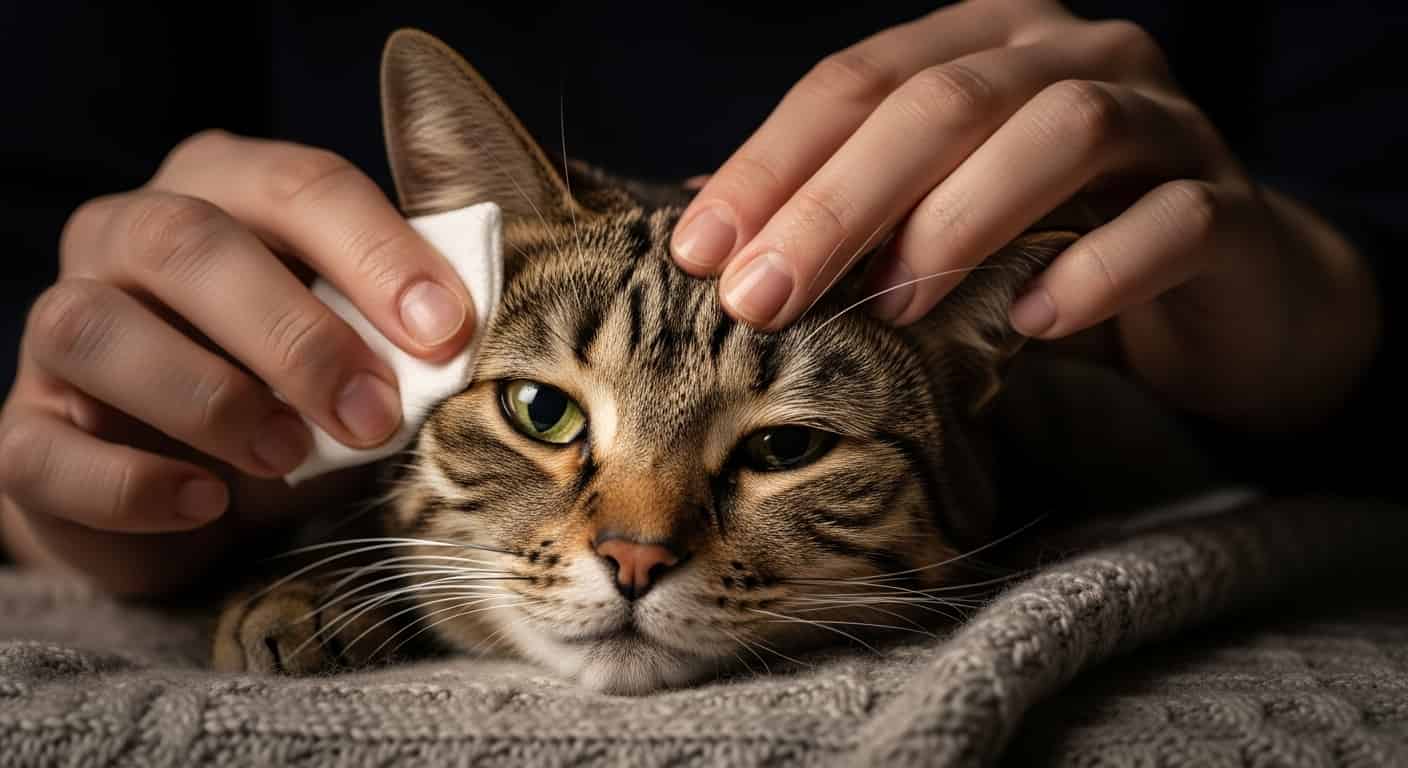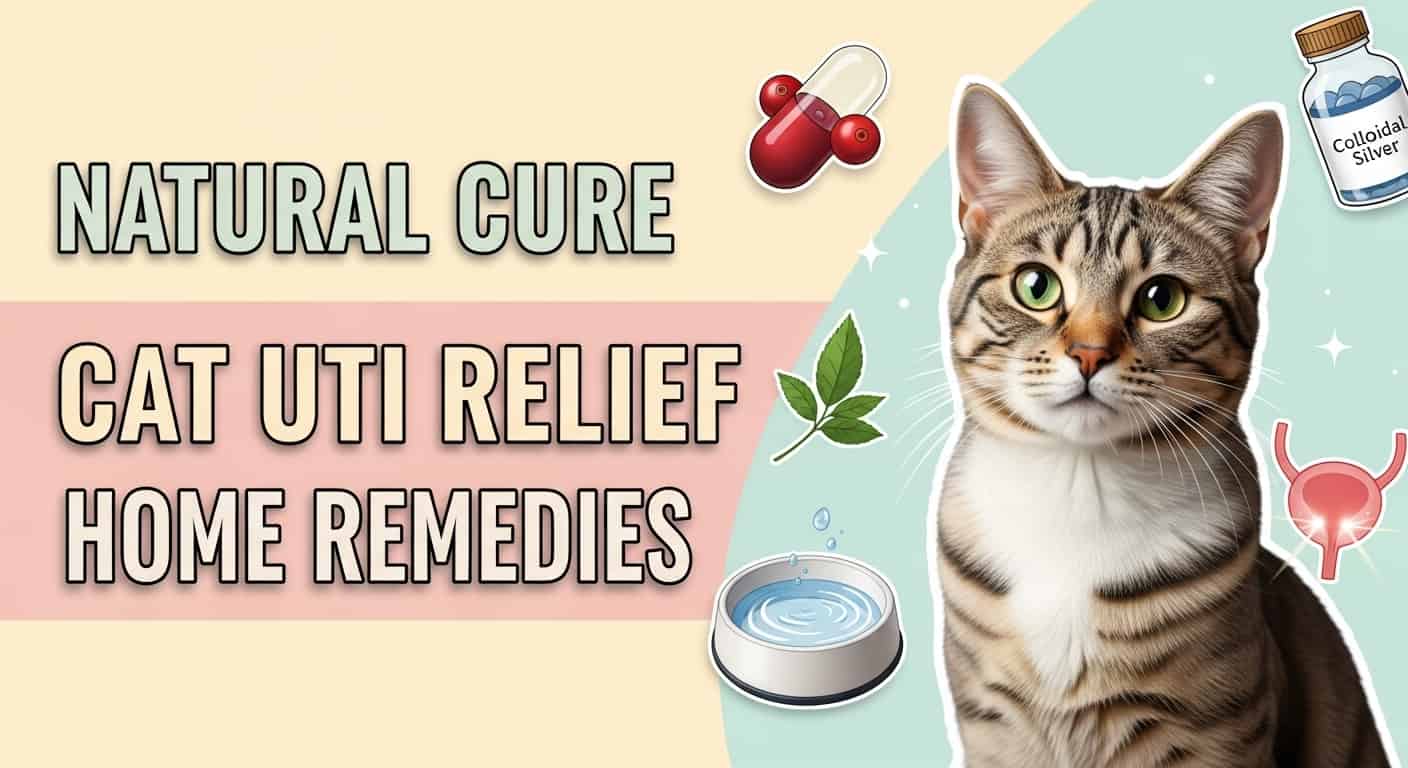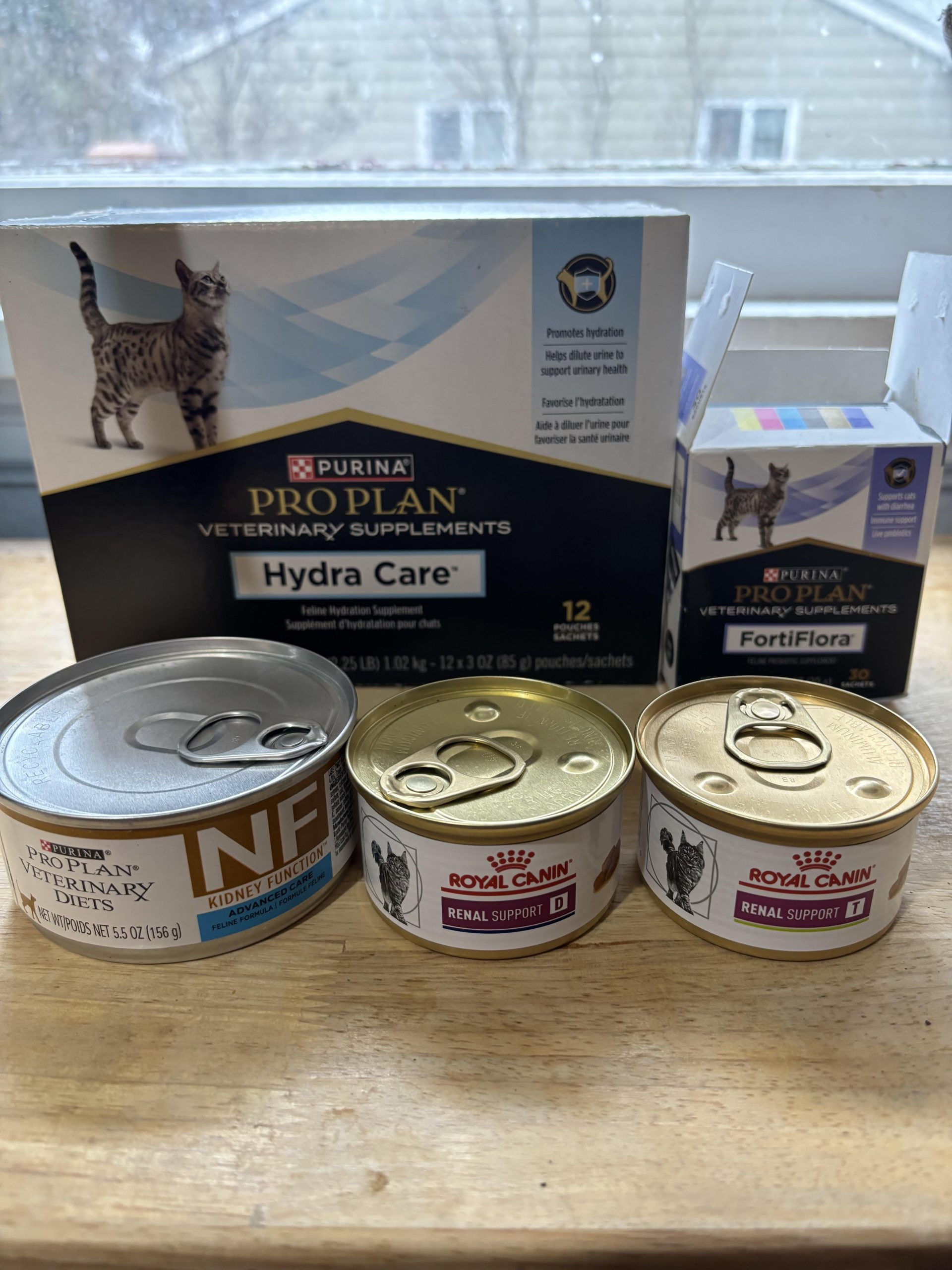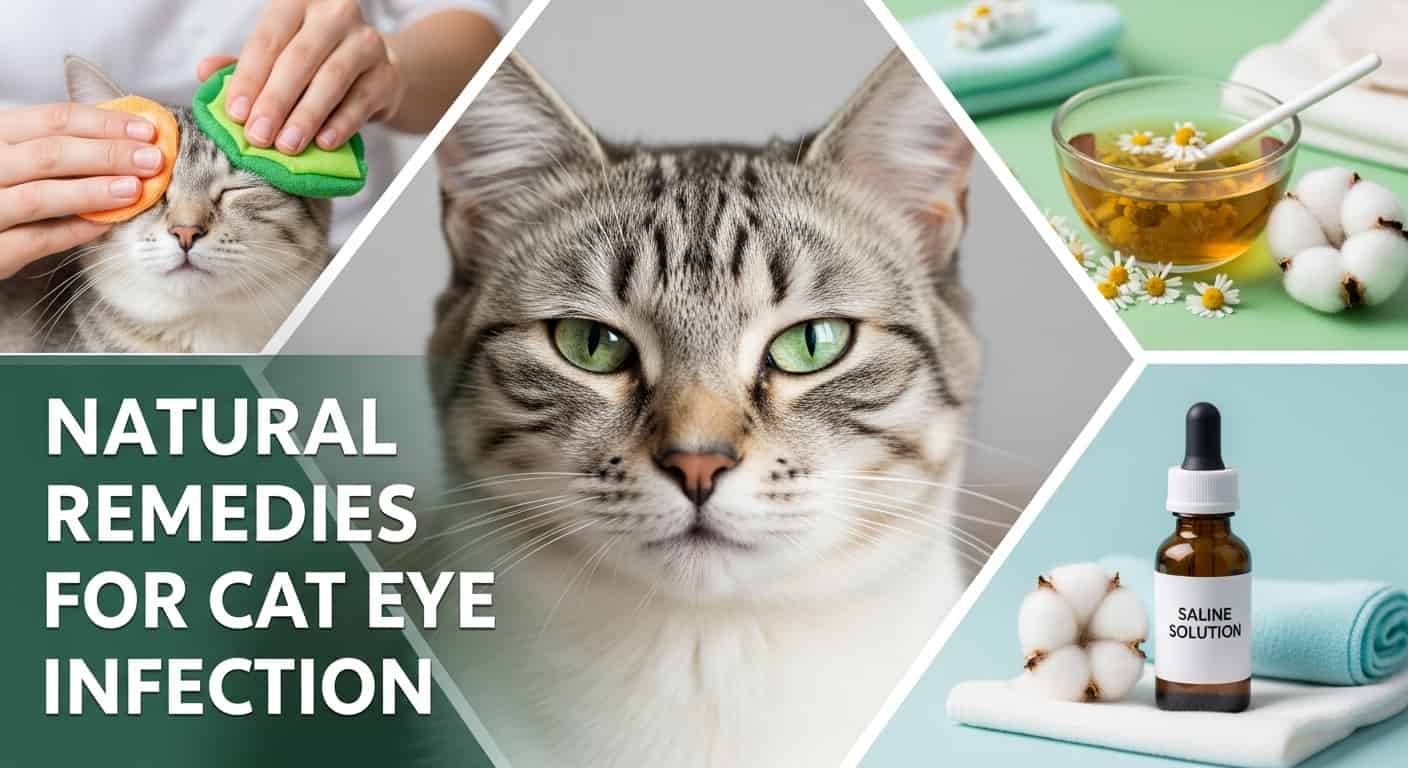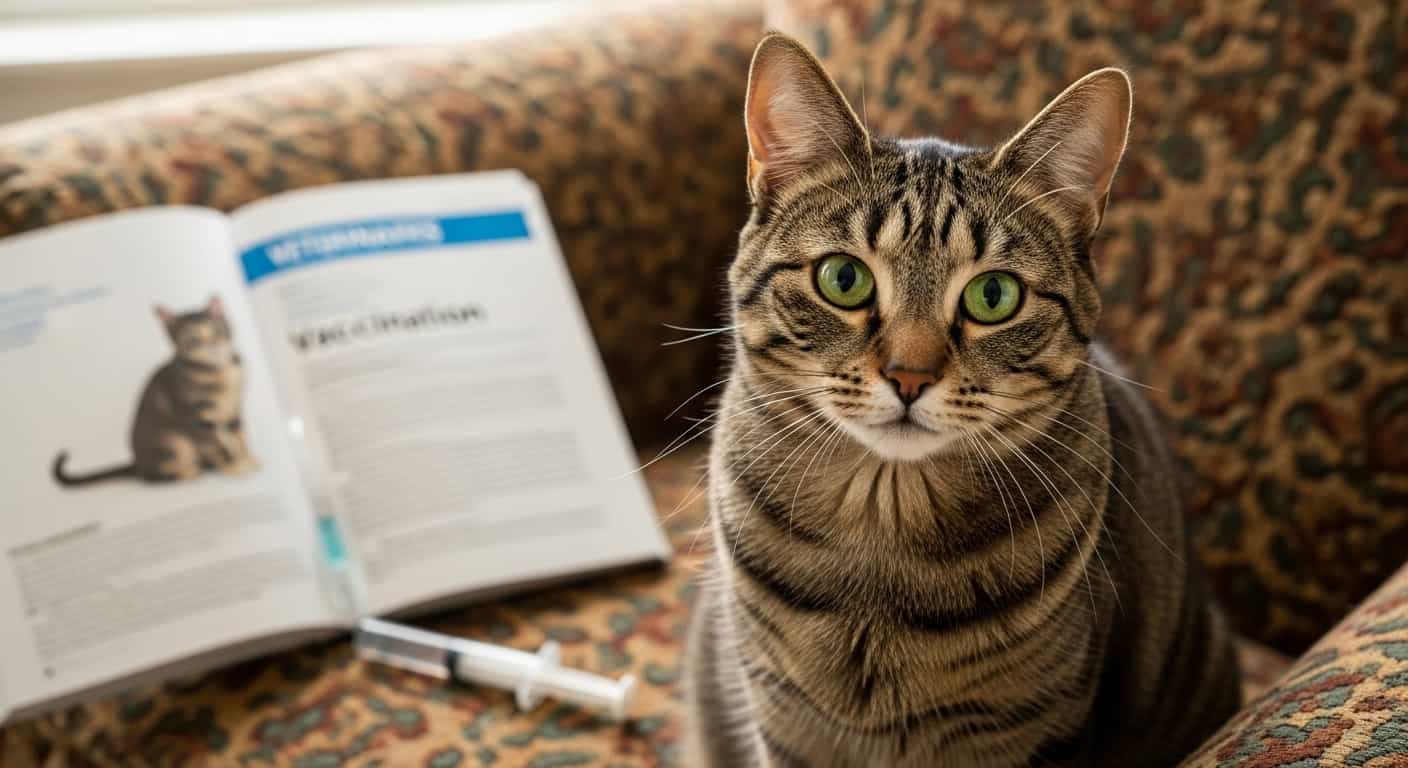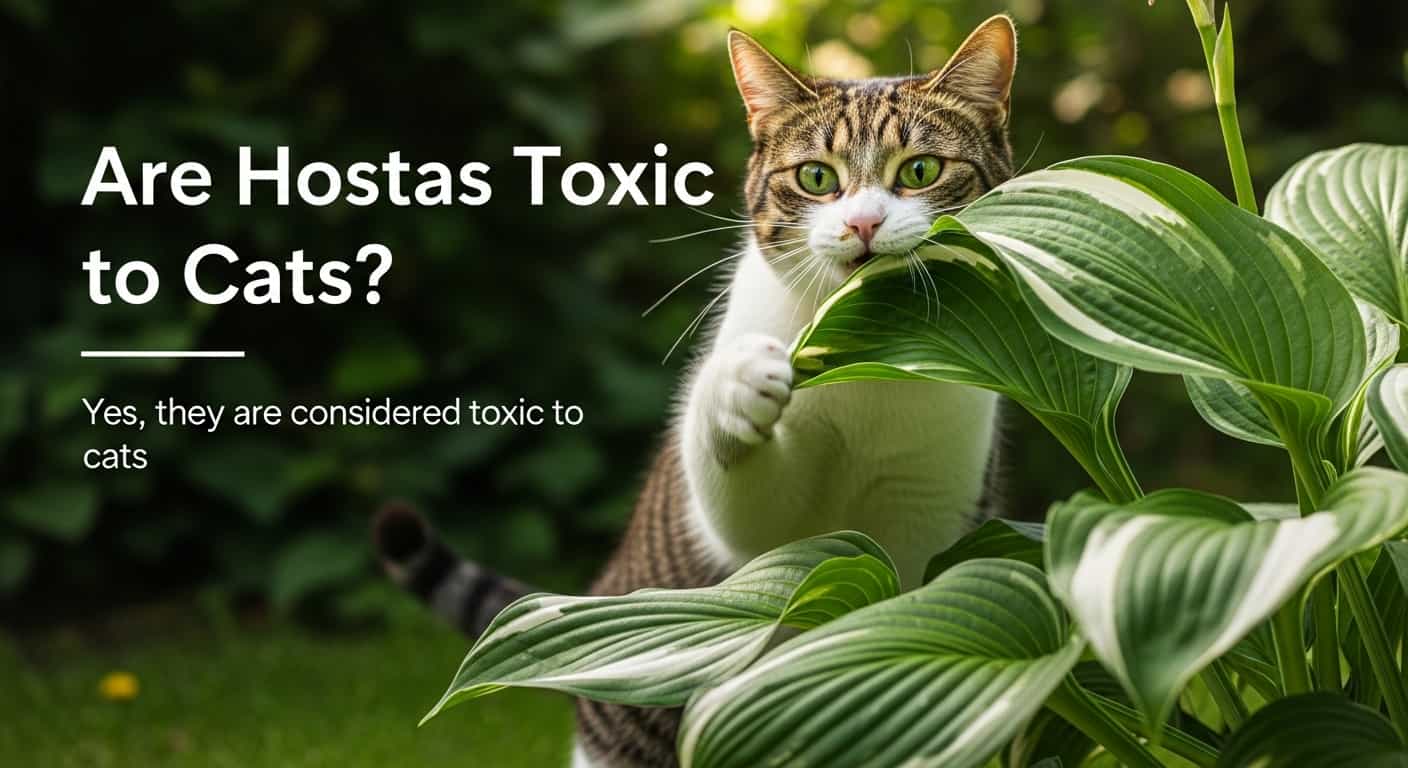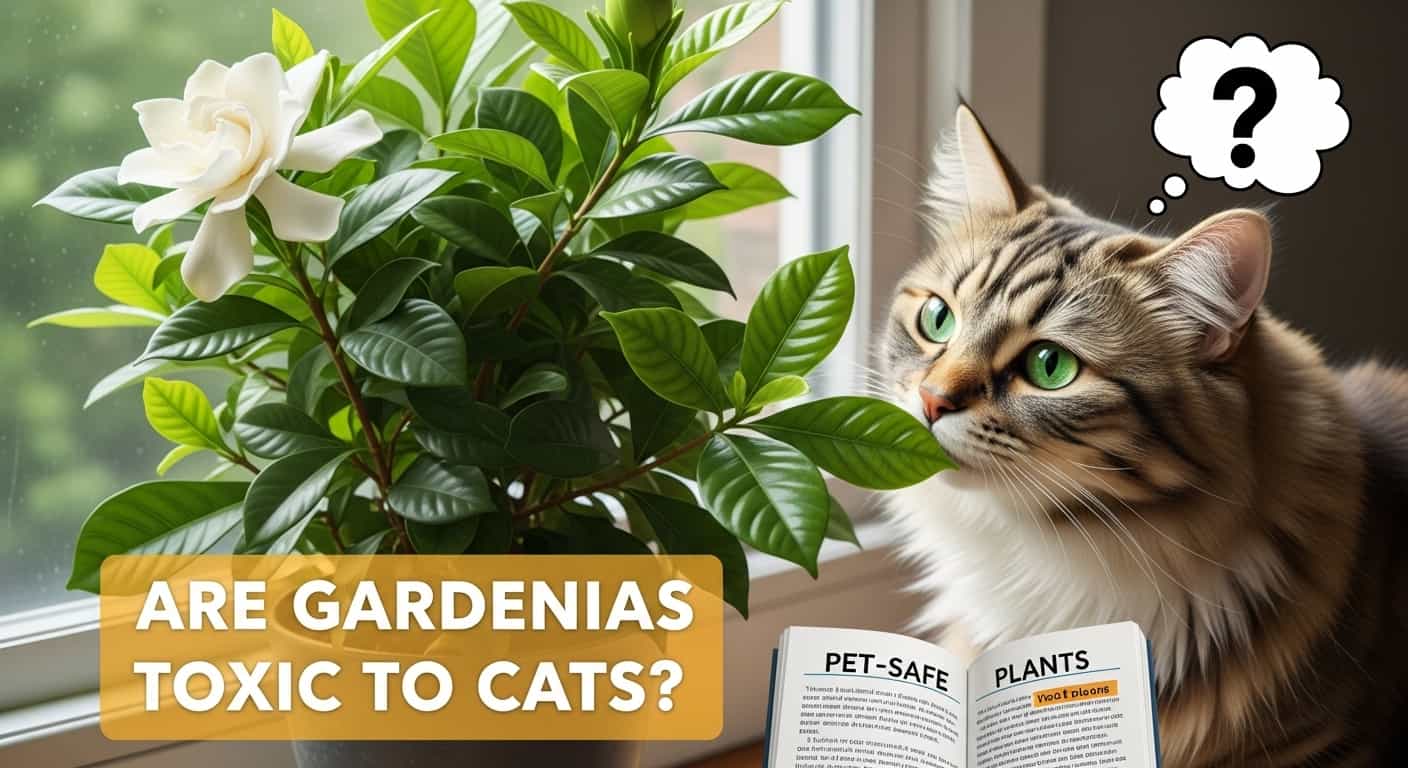Have you ever wondered whether your indoor cat really needs vaccines? It’s a common question among cat owners, and the answer might surprise you.
Table of Contents
ToggleYou might think that keeping your feline friend indoors protects them from diseases, but certain risks still lurk closer than you might expect. Vaccines play a crucial role in safeguarding your pet’s health, even if their paws never touch the outside world.
As you continue reading, you’ll discover the vital reasons why vaccines are essential for indoor cats and how they can prevent costly health issues down the line. Dive in to uncover the secrets to ensuring your cat lives a long, healthy, and happy life.
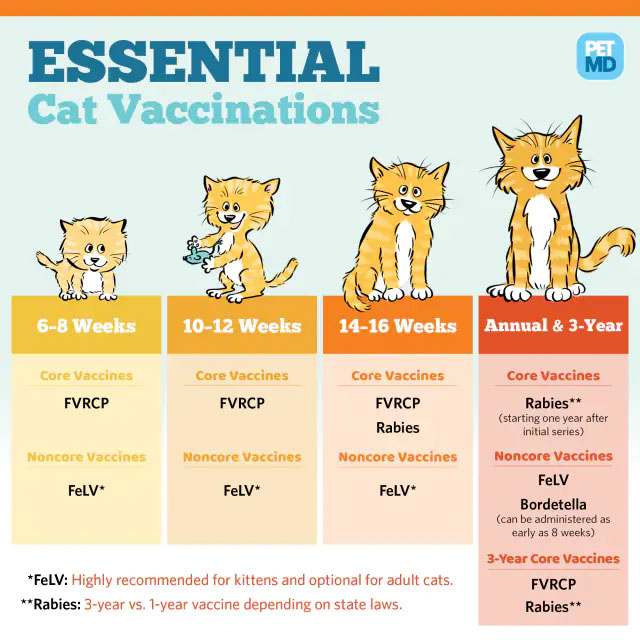
Credit: homeatlastrescue.ca
Health Risks For Indoor Cats
Even though your cat spends its life indoors, it doesn’t mean it’s entirely safe from health risks. Indoor cats can still face various health challenges, and understanding these risks is crucial for their well-being. Vaccinations play a vital role in safeguarding your feline friend from diseases that may not seem obvious at first glance.
Common Diseases
Indoor cats are susceptible to several diseases despite their limited exposure. Feline distemper, a severe viral infection, can affect even cats that never step outside. Upper respiratory infections, often caused by feline herpesvirus and calicivirus, can spread easily through the air or contaminated surfaces. You might think your home is a fortress, but germs can sneak in through visitors, other pets, or even on your clothes.
Indoor Vs. Outdoor Exposure
While outdoor cats face more apparent risks like predators and traffic, indoor cats have their own set of challenges. The assumption that indoor cats are completely protected can be misleading. For example, think about a guest who owns a dog or another cat. They might unknowingly bring pathogens into your home. Do you ever open windows or doors for fresh air? Even a brief moment can be enough for an airborne virus to enter.
Here’s a thought: How often do you sanitize your hands after handling outdoor objects? It’s easy to overlook this simple step, yet it could be the key to preventing disease transmission to your indoor cat.
Ultimately, ensuring your indoor cat is vaccinated is an essential step in minimizing these health risks. Vaccinations provide a shield against the unseen enemies that lurk even in the safest environments. Protecting your furry friend from common diseases and unexpected exposures is not just about their health; it’s about peace of mind for you.
Here's a related post that you might find useful. Natural Remedy for Constipation in Cats: Effective & Safe Solutions
Core Vaccines For Cats
Even indoor cats need protection from diseases. Core vaccines provide essential protection. These vaccines safeguard against common and serious feline diseases. It’s important to know about them.
Feline Viral Rhinotracheitis
Feline viral rhinotracheitis is a respiratory infection. It’s caused by the herpesvirus. This virus spreads easily among cats. Vaccination reduces the risk of severe symptoms. It helps in preventing outbreaks.
Calicivirus
Calicivirus affects a cat’s respiratory system. It can cause ulcers in the mouth. Infected cats may have a runny nose. Vaccination helps control the spread. It keeps cats healthier.
Panleukopenia
Panleukopenia is also known as feline distemper. It’s a highly contagious virus. The disease affects the cat’s immune system. Vaccination is crucial for preventing it. It saves lives.
Non-core Vaccines
Non-core vaccines are not essential for all indoor cats. They depend on specific factors like lifestyle and exposure risks. These vaccines protect against diseases that aren’t widespread but can be serious. Discuss with your veterinarian to decide if your cat needs them.
Feline Leukemia Virus
Feline Leukemia Virus (FeLV) is a contagious disease in cats. It spreads through saliva, blood, or urine. While indoor cats have a lower risk, FeLV can be severe. This virus weakens the immune system. It makes cats more prone to other infections. Discuss the benefits and risks of this vaccine with your vet.
Bordetella
Bordetella is a bacterial infection affecting the respiratory system. It causes symptoms like coughing and sneezing. This infection spreads in crowded spaces. Indoor cats at boarding facilities may face higher risks. Vaccination can help reduce the chance of infection. Consult your veterinarian about Bordetella vaccines for your cat.

Credit: millsanimalhospital.com
Benefits Of Vaccination
Indoor cats benefit from vaccines to protect against diseases they might encounter. Even inside, cats can be exposed to viruses through open windows or new pets. Vaccination helps keep them healthy and safe.
Vaccination is an essential aspect of keeping your indoor cat healthy and safe. Even if your feline friend never steps outside, vaccines offer numerous benefits that go beyond just following the vet’s advice. They provide a shield against potential health threats and contribute to your cat’s overall well-being. Let’s dive into the specific advantages of vaccinating your indoor cat.Here's a related post that you might find useful. Natural Remedies for Overactive Thyroid in Cats: Effective & Safe Solutions
Disease Prevention
Vaccines are vital in preventing diseases that can affect your cat. Even indoor cats can be exposed to illnesses through windows, doors, or other pets. Vaccines help protect against common viruses like feline herpesvirus, calicivirus, and panleukopenia, which can cause severe health issues. Consider the scenario where a friend visits and unknowingly carries a virus from their pet. Vaccinations ensure your cat is safeguarded against such unexpected exposures. You wouldn’t want your cat to suffer from a preventable illness, would you?Long-term Health
Vaccinations contribute significantly to your cat’s long-term health. By preventing diseases, vaccines help avoid potential complications that can arise from untreated illnesses. This means fewer trips to the vet and less stress for both you and your cat. Think about the peace of mind knowing your cat is protected against life-threatening diseases. Vaccinations are a small investment in your cat’s future health, ensuring they live a long, happy life by your side. Wouldn’t you want your furry companion to enjoy every moment without health worries? Vaccination is not just a medical routine; it’s a crucial step towards ensuring a healthy and happy life for your indoor cat.Potential Risks Of Vaccines
Vaccines can sometimes cause mild side effects in indoor cats, like soreness or mild fever. Rarely, more severe reactions, such as allergic responses or autoimmune disorders, may occur. Monitoring your cat after vaccination helps ensure their safety and well-being.
Vaccines play a crucial role in maintaining your indoor cat’s health, but they aren’t without their potential risks. It’s natural to feel concerned about the implications of vaccinating your furry friend. You might wonder, are the benefits worth the potential downsides?Adverse Reactions
Some cats may experience mild adverse reactions following vaccination. Common symptoms include slight fever, lethargy, or soreness at the injection site. These usually resolve within a day or two, much like when you feel a bit off after a flu shot. However, in rare cases, cats might have severe reactions. These can include vomiting, diarrhea, or difficulty breathing. It’s crucial to monitor your cat after vaccination and consult your vet if you notice any alarming signs.Over-vaccination Concerns
You might worry about the possibility of over-vaccinating your indoor cat. Too many vaccines can potentially overwhelm their immune system. This is why it’s essential to discuss a tailored vaccination schedule with your veterinarian. They can recommend which vaccines are truly necessary based on your cat’s lifestyle and health. For instance, if your cat never ventures outside, some vaccines might be optional. Always prioritize open communication with your vet to ensure your cat receives only what they need. Have you ever felt conflicted about vaccinating your cat? Balancing their safety and wellbeing is a delicate task. Understanding both the benefits and risks empowers you to make informed decisions, keeping your feline companion healthy and happy.Veterinary Recommendations
Indoor cats benefit from vaccines, protecting them against diseases like feline distemper and rabies. Even without outdoor exposure, these vaccinations safeguard their health. Consult your veterinarian for tailored vaccine recommendations.
As a cat owner, you might wonder if your indoor feline friend really needs vaccines. Veterinary recommendations are clear: even indoor cats benefit from vaccinations. While they might be less exposed to outdoor threats, there are still risks that make vaccinations important. Vaccinations protect your cat from diseases they could contract if they accidentally escape outside or come into contact with other animals.Frequency Of Vaccinations
How often should your indoor cat be vaccinated? Most veterinarians suggest starting with a series of shots for kittens, followed by booster shots as your cat grows. Typically, these boosters are given annually or every three years, depending on the specific vaccine. Check with your vet to see what’s best for your cat’s unique needs.Tailored Vaccination Plans
Not every cat requires the same vaccinations. Your vet can help you create a tailored vaccination plan based on your cat’s lifestyle and health status. For example, if your cat never leaves the house and has no contact with other animals, they might need fewer vaccines. However, if you often have visitors with pets, additional vaccines could be wise. The personalized approach ensures that your cat gets the protection they need without unnecessary shots. Have you discussed your cat’s vaccination plan with your vet? Your cat’s health could depend on it. Understanding your vet’s recommendations helps you make informed decisions about your cat’s care. Wouldn’t you want to be sure your furry friend is as healthy as possible?Myths About Indoor Cat Vaccination
Indoor cats are often thought to be safe from diseases, but vaccination is still essential. Even without outdoor exposure, indoor cats can catch illnesses from household items or visitors. Protecting them through vaccination ensures their health and well-being, keeping them safe from various threats.
Myths About Indoor Cat Vaccination You might think that indoor cats don’t need vaccines. After all, they stay inside all the time, away from the dangers of the outside world. But this common belief can put your feline friend at risk. Even indoor cats can encounter health threats. You might accidentally bring germs into your home on your clothes or shoes. Plus, if your cat escapes or you bring a new pet home, the risk increases. Are you wondering if the cost of vaccination is really worth it? Let’s dive into some common myths and see what’s true and what’s not.Misconceptions On Safety
Many cat owners believe indoor cats are safe from diseases. This isn’t always true. Viruses can enter your home in unexpected ways. Think about your last visit to the vet. Did you carry any germs back? Diseases can hitch a ride on clothing, shoes, or other pets. Consider fostering or adopting another pet. Your indoor cat might be exposed to new health threats. Vaccinations act as a safety net, protecting against these potential dangers.Cost Vs. Benefit Analysis
You may worry about the cost of vaccines for your indoor cat. But think about the potential vet bills if your cat gets sick. Vaccines are a small price to pay for peace of mind. Compare the cost of a vaccine to treating a serious illness. Treatment can be expensive and stressful for both you and your cat. Vaccines help prevent diseases that can be life-threatening. Isn’t your cat’s health worth the investment? Prioritizing vaccination can save you money in the long run. Is it time to rethink what you know about indoor cat vaccination? By busting these myths, you can make informed decisions for your feline friend.Maintaining A Healthy Indoor Environment
Ensuring a healthy indoor environment for your cat is crucial. Indoor cats enjoy safety from outdoor dangers. Yet, they still need a clean space to thrive. Maintaining a clean home supports their overall health. It prevents the spread of germs and illness. Regular cleaning and proper care are essential.
Hygiene Practices
Keep the litter box clean daily. It reduces odor and bacteria. Use pet-safe cleaning products for surfaces. Vacuum regularly to remove dust and allergens. Wash cat bedding weekly. Clean food and water bowls daily. These steps help maintain a hygienic environment.
Regular Health Check-ups
Schedule regular vet visits for your cat. These check-ups are vital for early disease detection. Vaccines protect against common illnesses. Your vet will recommend necessary vaccinations. Routine exams ensure your cat’s continued well-being.
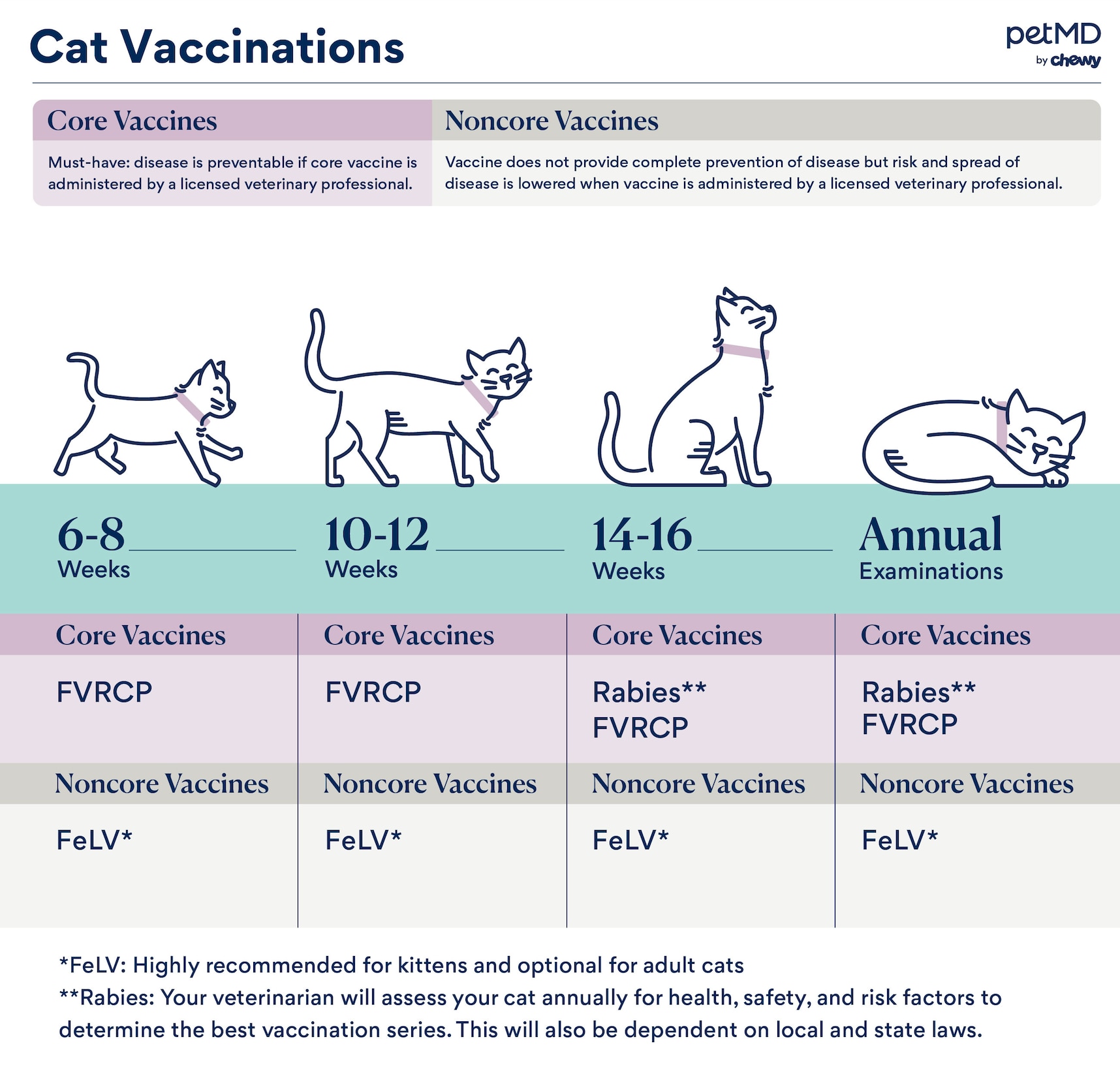
Credit: www.petmd.com
Frequently Asked Questions
Do Indoor Cats Really Need Vaccinations?
Yes, indoor cats require vaccinations to protect against diseases. Even inside, they can be exposed to viruses through windows, doors, or humans. Vaccinations help prevent illnesses such as feline distemper, feline herpesvirus, and calicivirus. Regular vet visits ensure your cat’s health and update necessary shots.
What Vaccines Are Recommended For Indoor Cats?
Indoor cats typically need core vaccines like feline distemper, feline herpesvirus, and calicivirus. Rabies vaccination is often required by law. Your vet may recommend others based on your cat’s lifestyle and regional risks. Always consult with your veterinarian to tailor the vaccination plan to your cat’s needs.
How Often Should Indoor Cats Get Vaccinated?
Indoor cats usually need booster shots annually or every three years. The frequency depends on the vaccine type and your vet’s advice. Regular check-ups ensure your cat stays healthy and up-to-date with vaccinations. Consult your veterinarian for a personalized vaccination schedule.
Can Indoor Cats Get Sick Without Vaccines?
Yes, indoor cats can fall ill without vaccinations. They are at risk from diseases like feline distemper and herpesvirus. Humans can unknowingly bring pathogens indoors. Vaccinations provide essential protection and help maintain your cat’s health. Regular vet visits are crucial for disease prevention.
Conclusion
Indoor cats still need vaccines for their safety. Diseases can enter homes. Through windows or on shoes. Vaccines protect against these threats. They boost immunity and health. Regular vet visits ensure your cat stays healthy. Discuss vaccine needs with a vet.
It’s important. Cats rely on you for protection. Vaccinations are a part of good care. Keep them safe and healthy. It’s a small step for a big impact. Remember, a healthy cat is a happy cat. Take action. Your cat’s life depends on it.

